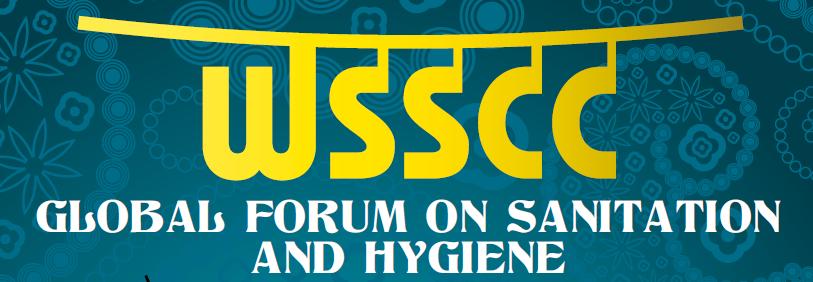/topics/society-culture-religion-and-history
Society, Culture, Religion and History
Water sanitation and hygiene advocacy and communication strategy framework 2012-2017: A draft document by Ministry of Drinking Water and Sanitation
Posted on 22 Nov, 2014 10:30 AMThis document by Ministry of Drinking Water and Sanitation is a draft of the WASH advocacy and communication strategy 2012-2017.
Exploring the change in communication in sanitation An Arghyam consultation held on 1 August 2012
Posted on 22 Nov, 2014 10:30 AMArghyam, which works in the areas of domestic water and sanitation, has decided to look more closely at the sanitation space to identify certain areas where it can work towards attaining total sanitation in rural areas of India.
Clean toilets are essential for a clean mind - The story behind the Appa Patwardhan Safai Wa Paryawaran Tantraniketan Maharashtra
Posted on 22 Nov, 2014 10:30 AMDr. Mapuskar has been working in the field of rural sanitation for the last 50 years. He implemented the principles of appropriate technology and community ownership at a time when these were not part of the national consciousness. Today he continues to be active in the field, advocating the use of decentralised, low cost sanitation options.
Future at stake The dismal picture of education in Bihar and Nitish Kumars efforts to revive it
Posted on 22 Nov, 2014 10:30 AM“The current age is the era of knowledge and not of weapons, and only through education and knowledge can one break out of the abject poverty”. Wise words from Bihar’s Chief Minister Nitish Kumar, who believes that times have changed since his government took over: now is the time to pick up the pen and discover its power.
Live feed WSSCC Global Forum on Sanitation Hygiene 914 October 2011 Mumbai
Posted on 22 Nov, 2014 10:30 AM
We all know the statistics: 2.6 billion people around the world are without access to a basic toilet. Diarrhoea – the vast majority of it due to poor sanitation and hygiene – is the second biggest killer of children worldwide.
Between us, we also have many of the answers. We have experiences of low-cost technologies that are acceptable and affordable for poor communities in rural areas. We have been involved in designing communications programmes that have contributed to sustained behaviour change.
We have seen governments and civil society working together to set up policies and programmes that ensure access to better sanitation in challenging settings, such as crowded informal settlements in fast-growing megacities. We have also seen businesses grow up around sanitation and hygiene, allowing individuals to make a dignified living and clients to buy the sorts of products and services they want and need.
Access and behavioral outcome indicators for water sanitation and hygiene by USAID Hygiene Improvement Project
Posted on 22 Nov, 2014 10:30 AM- Access and behavioral outcome indicators for water, sanitation, and hygiene by USAID Hygiene Improvement Project
The document highlights the evidence that has accumulated based on the reliable assessment and validation of hygiene practices – practices that are critical for the prevention of diarrheal diseases and the reduction of child morbidity and mortality.
Sanitation models in Trichy Tamil Nadu
Posted on 22 Nov, 2014 10:30 AMA few weeks back I had the opportunity to visit a couple of partners in Tamil Nadu. These two partners are facing a difficult task—sanitation and hygiene implementation through community participation. One project is in the urban slums of Trichy while the other one is a rural project a few hours outside of Trichy. These communities have open defecation rates of 90%. The problem mostly lies on the women. Women feel embarrassed and ashamed to go out in the open, so as a result they only go in the early mornings or late at night—basically during pitch black. Menstrual Health is a topic that is only now being addressed with organizations developing their own branch of sanitary napkin production, sold cheaply to women in rural areas. In addition to the burden on women, open defecation pollutes water sources, thereby leading to diarrhea, one of the biggest killers of children in the developing world.
Community led Total Sanitation newsletter for May 2010
Posted on 22 Nov, 2014 10:30 AM
Community Led Total Sanitation (CLTS) is an innovative methodology for mobilising communities to completely eliminate open defecation (OD).
Empowerment through action: The story of Anna Lakshmi
Posted on 22 Nov, 2014 10:30 AMThis article shows how women are catalysts for advocating widespread improved sanitation and – at the same time – reap substantial benefits in a program promoted by an NGO called Gandhigram Trust. The empowerment of women and marginalized populations is a vital step in realizing gender equality – equal access, planning, and management – for water and sanitation.
A village in Tamil Nadu realises the necessity of hygiene and sanitation for health and dignity of women
Posted on 22 Nov, 2014 10:30 AMThrough a maze of winding, curving roads off a main highway in Tamil Nadu, one must travel to reach the small, agrarian village of Muthampatti.





